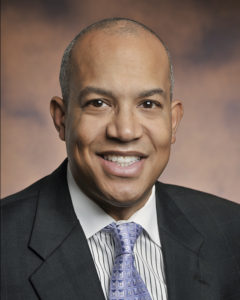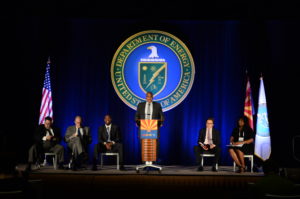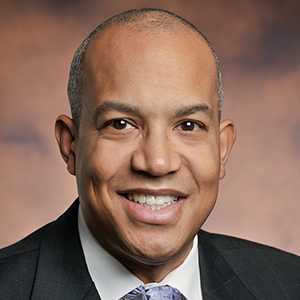
I had the pleasure of meeting John Hale III, Director of the Office of Small and Disadvantaged Business Utilization (OSDBU), for the first time in Tampa in the summer of 2014. It was my first foray into the world of government contracting with the Department of Energy. The event was the restart of an annual meeting that had been put on hold due to budget cuts for a few years. The Department of Energy (DOE) Small Business Forum and Expo was a great experience, so much so that I attended again this year in the sunny 115° dry climate of Phoenix in June. This event is an excellent opportunity to meet and talk with DOE Small Business Program Managers from all over the U.S. I highly recommend it to small businesses who want to get started working for the government. However, I must caution you that I’ve been repeatedly told it takes about 18-24 months from your starting point to get work with the DOE. And keeping my fingers crossed since I’m fast approaching that time frame, I hope that it is true. There are a plethora of interesting jobs of all sizes the DOE needs help with.
I’ve been most impressed with Mr. Hale and his staff when it comes to providing information and direction to a large audience of small businesses who want to do business with the Department of Energy. In June when I asked John for a Twitter picture he readily obliged and also agreed to let me interview him for this blog. He has a big job and yet is incredibly approachable and you can tell by talking to him he is both passionate about his work and good at what he does.

How long have you been the Director of OSDBU at the Department of Energy and in the Public Service sector?
I was appointed as the Director of OSBDU three years ago. Prior to that I was with the Small Business Administration (SBA) for a year and a half. Prior to that I worked on the 2008 Presidential Campaign.
What did you do prior to working in public service?
I worked primarily in the consulting and restructuring of mid-market private industry companies.
I found this on the Federal OSDBU website:
“The OSDBU is tasked with ensuring that each Federal agency and their large prime vendors comply with federal laws, regulations, and policies to include small business concerns as sources for goods and services as prime contractors and subcontractors.”
This is a big task. How does the DOE OSDBU differ or conform to this directive? How does the DOE OSDBU get this done?
We use a combination of in-reach and out-reach efforts to collaborate with small businesses and the DOE small business office staff and all DOE procurement office staff to attain our goals. We work internally with Federal and DOE data collection to train our staff and our prime contractors on a common ground in working together with small businesses. Additionally, our outreach efforts with the Regional and National Small Business Forums have had a positive impact.

Do you have any upcoming events you are providing to the Small and Disadvantaged Businesses you serve?
We will have our annual DOE OSDBU FY 2016 Kickoff meeting here in DC in the DOE Conference room on November 6, 2015.
We are also proud to be able to host the 15th Annual DOE Small Business Forum and Expo May 23-25, 2016 to be held in Atlanta.
I also found your Office Goal on the DOE website: “The OSDBU goal is to provide maximum practicable opportunities in the Departments’ acquisitions to all small business concerns. In doing so, the Department will meet/exceed statutory prime small and subcontracting goals.”
What are the statutory prime small and subcontracting goals for the upcoming year, 2016?
Because of the nature of the work done at the Department of Energy with things like nuclear weapons and nuclear waste removal, our small business goals vary. DOE and every federal agency collaborates and negotiates with the SBA to establish our annual small business goals. This usually occurs in the first quarter of the fiscal year. Based on the forecast of projects for the upcoming year, these goals are typically set in late September or early October.
When we look at setting our goals, we look at how we can best advocate for Small and Disadvantaged Businesses (SDB). We also look at the number of dollars, as well as the number of companies and transactions we can open up for SDB. Sometimes that is directly with DOE but many times we find the opportunities are with our Prime Contractors.
Does the OSDBU report to DOE or to Small Business?
We report to the Office of the Secretary of the Department of Energy, Secretary Ernest Moniz.
What are the most important things the DOE OSDBU has accomplished?
I am proud of the work we have done in the last three years. Here are some accomplishments I think best represent the work we’ve been doing:
1. The OSDBU office was separated with our own budget in FY 2014, which allows us to better advocate for Small and Disadvantaged Businesses.
2. We were able to reinstitute the Annual Small Business Forum and Expo, a national conference that allows Small Business people to see Small Business Program Managers from the DOE, as well as Small Business Liaison Officers from Prime Contractors from all over the country, all in one place over the course of two and a half days.
3. We’ve also been successful in collaborating with our program offices for additional Small or Disadvantaged Business set asides, to the tune of between $500-600 million.
4. We recently collaborated with General Klotz at the National Nuclear Security Administration (NNSA) for the awarding of a $250 million Small Business set aside award. The NNSA selected three small business led teams for its new Information Technology (IT) Infrastructure and Cyber Security Support Blanket Purchase Agreement. The contract covers a wide spectrum of IT and Cyber Security support for NNSA’s Office of Information Management.
5. We’ve also received an award from Fed Biz Ops for collaboration with Oak Ridge Institute for Science and Education (ORISE) for a partial Small Business set aside for 30-33% of a historically prime contract award.
How do you communicate these successes?
That is one of our next objectives – to tell the story. We need to share our process of doing business, making it both transparent and simple for the SDB we serve. We want to better communicate our outreach events and provide marketing information for the small disadvantaged business community.
What is the biggest challenge to your office?
The biggest challenges we face are:
1. Proactively aligning small business opportunities with our mission
2. Researching and developing resources for the 17 Federally Funded Research and Development Center (FFRDC) locations. These are big laboratories and universities with often very technical requirements.
3. Finding small businesses to help with the highly specialized needs of both nuclear weapons and nuclear waste clean up projects.
At my very first session at the 2014 SB Forum, I remember the facilitator saying it typically takes between 18 months and two years to get your first business with DOE. Is that a statistic on track with your experience?
Yes, it is true; that is typical. A large part of that is the education process for small businesses to learn the system to find the jobs they are qualified for and then work within the timing of job awards. In the meantime it takes time to build trust with the people who will be managing the project. Just like any organization, the people awarding the projects want to mitigate risk by knowing the small business they work with and that that small business will do the job right. Sometimes contracting with a DOE prime contractor is the best way to get your foot in the door. That’s where the prime contractors can really be helpful in meeting our objectives and providing an entrance for small businesses.
Last but not least, what is the best piece of advice you can give a Small or Disadvantaged Businesses that is looking to start the process of getting business with the DOE?
I’m glad you asked, first I’d like to tell small disadvantaged businesses they need to figure out a way to make it easy for the DOE to work with them, show us how you can solve a problem for us. Here are some tips that will help:
1. Understand how to read budgets and see the agency priorities. That helps you understand where the money goes and how you can get involved.
2. Look at Audit Reports from the Inspector General (IG); see if something needs to be updated or fixed as indicated by the DOE IG. These reports provide the information for current DOE challenges.
3. Do your research. Look at the Federal Procurement Data System. This has a list of the last 12+ years of federal contracts. Put in your North American Industry Classification System (NAICS) codes to see who buys your services and who received that last award. This gives you a name and indication of when the contract expires.
4. Then do more research. Know to whom you are targeting by looking up speeches from the agency’s Secretary, Deputy Secretary and Assistant Deputy Secretaries. You will be amazed what you learn.
5. Distinguish yourself from the other companies that provide your services.
Many thanks to John Hale for the time and information shared and for continuing to be the champion of small and disadvantaged businesses.
Luann Boggs is the Vice President of Business Development for bloomfield knoble. She works with new and existing accounts as a liaison between client and creative. Her favorite part of the job is meeting and working with interesting and intelligent people. Her personal interests are family, friends, good books and travel including all 50 states and over 25 countries.

